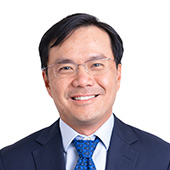Why is it important and timely to think about Asia as interest in alternative proteins grows?
It is indeed an opportune time to think about Asia. As the fastest growing region, Asia’s population will be 250 million larger by 2030. Total spending on food will double from US$4 trillion (S$5.4 trillion) in 2019 to over US$8 trillion (S$10.8 trillion) by 2030. These numbers imply a total annual investment requirement of US$290 billion (S$391 billion) in 2030 which will unlock market growth of around 7 per cent per year.
Asia is also urbanising faster than any other region and by 2030, 65 per cent of the world’s middle-class population will reside in Asia. Consumer preferences are therefore shifting. The growing middle class and its rising purchasing power will drive up consumption and demand for high-value animal protein. As consumers look for more nutritious and tastier food options, there will be shifts from carbohydrate-reliant to protein-heavy diets.
That is an opportunity the alternative protein industry can help address, and we are already observing global players expand into Asia to cater to the demand.
- Beyond Meat has decided to establish its manufacturing facility in China.
- Eat Just, Inc is establishing its largest protein isolate facility globally in Singapore.
- Oatly has formed a partnership with Yeo Hiap Seng to build a manufacturing facility in Singapore.
Closer to home, our innovative local startups are also rising to the global stage:
- Shiok Meats has raised more than US$30 million (S$40.5 million) to date, and will build an R&D production facility in Singapore with plans to launch its product by 2023.
- Next Gen Foods has also raised US$30 million to date, and will plan to bring its plant-based chicken alternative (TiNDLE) to the US.
- TurtleTree Labs, the world’s first cell-based milk company, recently raised US$80M Series A round and is expanding its R&D operations into Davis, California.
- Sustenir has launched indoor vertical farms in Hong Kong and Malaysia, on top of scaling up its farm in Singapore
Asia is such a diverse region. What are some key challenges you foresee hindering the ability to meet such a demand growth?
There are several key challenges that need to be addressed. For starters, there is a lack of infrastructure investments and clear policy frameworks to support the introduction of new technologies across the food and agricultural ecosystems. Asia’s diversity of countries, in terms of differences in regulatory systems, levels of economic development and culture, currencies and dietary preferences, fragmented production and supply chains, also make it difficult for a single standard solution to work.
In that regard, innovations and marketing strategies require customisation to meet the unique needs of Asia. For example, Asians have been eating vegetarian products for some time through different forms. As a result, different marketing and product strategies will likely be required to raise the awareness on the differentiation and benefits of alternative proteins.








